Losing is inseparable from trading. Losses will occur, and trying to avoid losses can be the demise of a trader, on any time frame. Whether someone is a day trader or an investor, not accepting losses is a recipe for disaster. We are hoping the trade turns around instead of limiting the loss…which could easily get bigger.
Great traders know losses occur, but they plan for losses and have an exit plan for when losing trades occur. This exit plan is critical, and failing to have one is where most traders end up going wrong in their trading careers.
Why We Try to Avoid Trading Losses
Humans have a tendency to avoid loss, which makes sense. Loss doesn’t feel good.
In terms of trading, this often results in an inability or a seriously delayed reaction in closing out a losing trade.
Losses are allowed to remain in an account and the trader shifts into “hope” mode. The “hope” mode results from the trader wanting to get back to breakeven. As long as they cling to that hope that the trade will get back to breakeven, they can rationalize to themselves that they haven’t actually lost any money yet.
As I discuss in How to Rescue a Big Trading Loss, we have actually incurred loss, whether we close out the trade or not. Our capital has been reduced, and now either the trade we are in or something else needs to get that capital back. Not closing the trade is simply an issue of psychology. The money is gone and needs to be recouped.
In “Beyond Fear and Greed” Hersh Shefrin discusses a study where people generally view a loss as having 2.5 times the impact of a gain of a similar magnitude (24).
In other words, a $1,000 gain is one thing, but a $1000 loss in psychological terms feels more like a $2,500 loss. This is not unreasonable to fathom. Being wrong carries an impact on the ego, not to mention losing money we have means we forgo an opportunity to use it for something else.
Money you make is money you didn’t have anyway, but money you lose is money you already had and no longer have. This stings, and is a valid psychological reason why traders don’t want to close their losing trades when they should.
Why We Need to Lose to Win!
Trading profits are always based on the ability of the trader executing the trades.
Successful traders don’t let losses get out of hand. They are not afraid to take a loss, and in fact, they will likely realize many losing trades because they have a low tolerance for trades that don’t react or move how they expect. They aren’t concerned about being right. They are concerned about limiting losses.
In this way, taking losses actually does mean a trader is more likely to be profitable.
If a trader exits when they are supposed to, such as when the price hits a stop loss, it shows the market did not react how they anticipated and thus there was no reason to remain in the position.
A trader who allows losses to mount is no longer in control of their trading. They have entered a gambling mentality. The market has shown them they are wrong but they are not listening to the signals.
Instead, they have opted to not close the losing trade; they’re unwilling to accept they’re wrong. As discussed, there are psychological reasons why this occurs, but regardless of the reasons, not accepting a loss, and letting it continue to mount, will most certainly result in frustration and a depleted trading account over the long run.
Consider a strategy that makes 30% per month and only wins 50% of the time. Pretty good. On a $30,000 account, if the strategy is followed, you pick up your cheque for $9,000 at the end of the month.
BUT, to get that cheque you have to lose half the trades, exiting as planned when that happens. If you try to avoid the losses, the strategy doesn’t work anymore and you probably end up with a cheque for a lot less, or maybe you even lose money. We don’t know which trades are going to be winners and losers before we take them. So we have to take all the trades the strategy tells us to.
Imagine you make $700 on winning trades, but lose $300 on losing trades. If you win 50% of your trades, you make a lot of money. But, assume you stop controlling your losses…maybe even just once. You lose $3,000 on one trade. At the end of the month that trade is going to stick out like a sore thumb on your trade list. You would have $2,700 more in your pocket had you just gotten out of that one trade when you were supposed to. Big losses kill performance. You now need 4 winning trades to recoup the loss on that one. This could be the difference between being profitable for the month or losing money. If it happens more than once a month, you’ll likely certainly end up negative.
Looking for day trading strategies? The EURUSD Day Trading Course reveals multiple time-tested strategies.
A Psychological Trick to Get Out of Losing Trades
Those who are struggling with their trading may have a hard time admitting they are to blame. Rather, they view the losses as “The market’s fault.” There are endless excuses for why losing trades occur, but ultimately the buck stops with the person executing the trades. The faster we accept this, the quicker we will learn to minimize losses and the more profitable we are likely to become.
This is where a psychological trick comes in. Not only are losing trades losing us money, but the longer we hold onto those trades (and tie up capital) the more opportunities we give up to get into profitable trades. Losing trades deal us a double blow and should be closed as quickly as possible (per our strategy guidelines) so we can move on to other opportunities.
Stockbrokers are often taught NOT to tell their clients to “Exit that losing position.” Rather the broker is taught to tell their client something like “We need to transfer your funds into a better opportunity.”
Avoiding the “loss” discussion and instead using words like “transfer” makes closing out an unprofitable trade much more palatable.
Just as a stockbroker may convince a client to get out of a losing trade by changing their language, individual traders should also do this. Try not to think in terms of winning and losing on trades, because both will occur regardless of belief or trading system. Rather the trader should focus on transferring capital into something that is performing better. This is a quicker way to make money back than hoping our current position which is losing money will all of a sudden turnaround and perform better than any other opportunity out there.
This does not mean someone has to continually be trading (over-trading). It simply means that any time a trade is made the trader knows when and where they will exit. When the losing situation develops, the loss is booked and the trader can focus on moving funds into other opportunities. Getting out of the losing trade simply allows that transfer of capital to occur.
If you are having trouble closing out losing trades, try changing your language. If that doesn’t work, consider altering your identity and viewing yourself as someone who hates big losses and actually relishes taking a small loss because it means you have your capital poised and ready for the next great opportunity.
Tactics for Improving Self-Control and Discipline covers this identity work as well as other ways to start cutting those losses with greater ease.
What is a Small or Big Loss?
You may wonder what a big or small loss is. Good question. It should be quantified.
I don’t lose more than 1% of my capital on a single trade.
I can put all my capital into a trade if I want, but if it starts going against me, I get out if I am losing 1% of my account on it.
For example, on a $100,000 account, I won’t lose more than $1,000 on a single trade.
I may buy $20,000 worth of that stock (or $200,000 with leverage), but if the value of that position drops to $19,000 (or $199,000), I’m out of there.
I figure out how much wiggle room I want to give a trade. This establishes my stop loss. Then, once I know my entry point and stop loss I can calculate my position size. This way, everything is taken care of. I place my trade, and if my stop loss is hit I lose 1% of my account or less.
If you lose more than you are supposed to, that is a big loss.
If I lose 2% on a trade, ouch. That’s a big loss. Twice as big as it should be.
If I lose 5% on a trade, that’s a huge loss. That warrants some serious internal reflection on what I’m doing, how it happened, and how I can prevent it from happening again.
This is for trading.
My passive investing approach is a little different. I only buy index ETFs and I continually buy them regardless of market conditions. The average long-term return is 10% per year, but there will be up and down years. I will be holding those positions 20 years from now. When investing in individual stocks, I always limit my risk to a set amount.
But I would never, ever, take this same approach with trading. And a trade can never be turned into an “investment” after entry.
Final Word on How to Gracefully Lose So You Can More Easily Win
Losing trades not only strip a trader of their capital, but if a loss is held longer than needed other opportunities may be missed. It’s imperative a trader be willing to realize losses as soon as required so that they can move on to other opportunities.
There are many reasons why losing trades are allowed to mount, but ultimately it’s the responsibility of the trader to be in control of how they trade the markets. Traders can benefit by not thinking in terms of losses or profits, but rather simply thinking in terms of “transferring” funds from one opportunity to another. Become someone who hates big losses. By eliminating the big losses, and only taking small (strategy-defined) losses, it becomes easier for profits to outpace the losses, allowing the account to grow.
Want to learn how to avoid taking big losses while swing trading stocks? Want to know when to trade aggressively and when to back off? The Complete Method Stock Swing Trading Course reveals strategies and analysis for capitalizing during the good times and avoiding losses when the stock market is falling.
By Cory Mitchell, CMT
Disclaimer: Nothing in this article is personal investment advice, or advice to buy or sell anything. Trading is risky and can result in substantial losses, even more than deposited if using leverage.




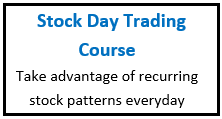
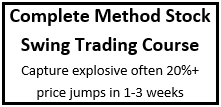
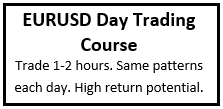

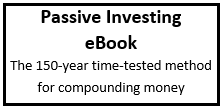
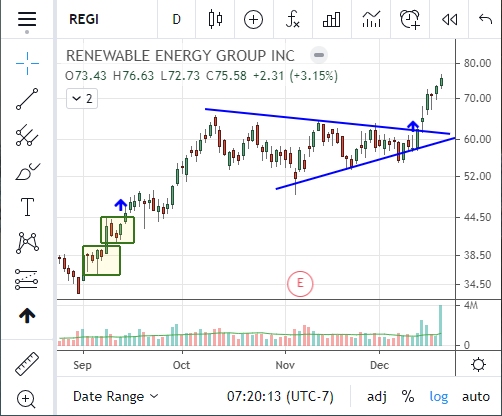
2 Comments
Leave your reply.